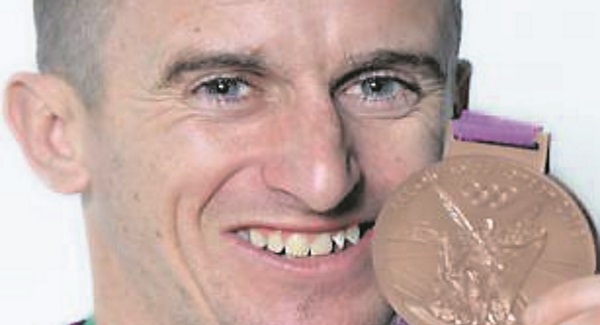Olympic hero Rob Heffernan has spoken about how his career hung in the balance after a doping test conducted moments after he woke from hip surgery produced an adverse result writes Eoin English.
Heffernan revealed his personal turmoil yesterday, as he became the first Irish athlete to be presented with an Olympic medal on Irish soil during an historic ceremony in Cork’s City Hall last night.

He was upgraded from fourth to bronze for the 2012 London Olympics 50km walk after the Russian athlete who won was stripped of gold after failing a drugs test.
But Heffernan spoke about how he feared his own career was over in the wake of a post-surgery doping test last year. He described the next five weeks, during which he sought to clear his name amid fears of being labelled a drugs cheat, as the worst time of his life. And he said protocols have still not been put in place to protect other Irish athletes from a similar nightmare scenario: “It had the capability of completely destroying me. It was tougher than when my mother died. I was in such a bad place, seeing no way out.”
In his autobiography, Walking Tall, Heffernan accuses Athletics Ireland of giving him no support as he fought to clear his name.
Heffernan woke from hip surgery paid for by Athletics Ireland, in London on April 24, 2015, to find a delegate from the International Association of Athletics Federation standing beside his hospital bed poised to conduct a doping test.
It produced an adverse result due to the presence of hydroxyethyl starch — an excipient, or a tiny ingredient, of intravenous paracetamol used during the hip surgery. Heffernan was given just days to provide an explanation before his B sample would be tested.
His agent, Derry McVeigh, said even though Athletics Ireland organised and paid for the surgery, they told him they couldn’t offer any support, legal or otherwise, as Heffernan tried to formulate a response for the IAAF. It was only with the help of medics, that Heffernan was finally able to provide the required explanation.
This article first appeared in the Irish Examiner.


